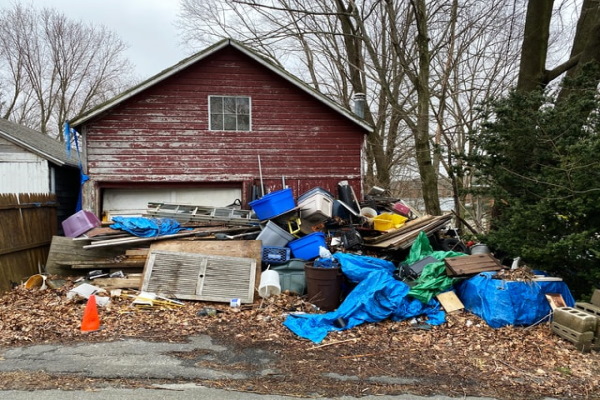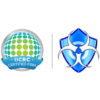
Hoarding is a disorder that drives people to compulsively and excessively gather items, with no regard for the item’s state, value or need. Hoarding could be a disorder on its own or it could also be a symptom of other mental disorders like OCD (obsessive-compulsive disorder) and depression.
Hoarders are generally known to collect almost all sorts of things. The hoarder often feels there seems to be no limit to the kind of, and amount of items they could collect.
Hoarders will often refuse to dispose of their accumulated items or even consider them as trash. This behaviour results in the home or living space becoming cluttered and a hazard to the occupants and visitors.
Researchers and professionals are still looking to identify more risk factors associated with hoarding.
When concerned about a loved one’s condition, it’s always best to seek medical assistance from a licensed physician. They are capable of assisting the affected person with more effective treatments for it.
Here are some of the most common types of hoarding.
Hoarding of purchases.
Persons who exhibit signs of chronic shopping are known as shopping hoarders or shopaholics.
Impulsive spending, compulsive shopping and excessive hoarding provide the concerned person with a sense of identity and self-esteem. These addictions seem to fill a void that the hoarders are often not even aware of.
Shop hoarders tend to buy items even if they have no practical use for them. These purchased items may be left unused and sitting in piles. Most of the purchases may still remain unopened and in their original packaging for long periods, thus occupying precious living space.
Hoarding of food.
Food hoarders usually continuously buy food and grocery items. It doesn’t even matter if the refrigerator, cupboards and pantries are already brimming with non-perishable and perishable food items.
All food items have expiration dates, whether preserved or canned. These food items will no longer be edible at some point as they begin to rot. Even this reality, however, is not enough to stop a food hoarder. Rotten food often attracts insects and disease-carrying rodents. Holding on to expired food items poses a significant health risk to the hoarder and their family.
Persons with this hoarding condition of buying and collecting food often exhibit some type of emotional attachment to food.
Hoarding of trash or garbage.
Garbage hoarders collect and take home items by rummaging through other people’s trash. What others discard as unwanted and trash, is considered a treasure by a garbage hoarder. They cannot easily differentiate between valuable items and harmful waste.
Waste matter, trash and garbage tend to attract different kinds of pests, insects and rodents. They can carry germs and viruses harmful to humans.
Persons collecting garbage or trash are at a high risk of acquiring other diseases due to their hoarding condition. Generally the overall conditions of a garbage hoarder’s home are disheartening.
Hoarding of recyclables.
A recycling hoarder collects large piles of old cardboard boxes, aluminium cans, glass and plastics. The hoarder intends to recycle the collected items and earn some cash. The hoarder’s volume usually far exceeds an average household’s normal amount.
In most cases, the piles of items for recycling continue to increase in size and scope. Even when many rooms are entirely filled with recyclable items, the actual action of recycling never materialises.
The sheer quantity of collected recyclables, combined with the physical tasks of sorting through them and transporting them to a recycling facility, turns this obsession into a practical impossibility.
Hoarding of animals.
An animal hoarder is defined as a person who acquires more animals than they can properly care for. They usually have no regard for the number, type, and welfare of the animals. Animal hoarders often overlook the care and needs of their pets such as their feeding, grooming, waste disposal, pest protection and general well-being. Persons who hoard animals may start accumulating them having the best of intentions. These intentions soon fade away as it becomes more evident that they are unable to properly care for the growing number of animals.
A steady acquisition of more and more animals, and these animals producing their own litter, can quickly make an animal hoarding situation spiral out of control. These unattended animals tend to urinate and defecate anywhere inside the house. The animals often become sick and die. This bio hazardous and dirty living environment poses a great health risk, not just for the animals but for the hoarder and the house’s other residents as well.
Hoarding of information and paper material.
One of the most common types of hoarding is information and paper hoarding. The collection of information is vital to the hoarder’s day-to-day process, no matter how unlikely any of the information will be used.
Paper hoarders collect unnecessary and excessive amounts of paper made items. Unfortunately, as paper is available virtually everywhere, it is the easiest of items to collect and the fastest to accumulate. Paper hoarding involves collecting books, magazines, notebooks, coupons, invoices, flyers, and sometimes even paper towels.
Information hoarders or knowledge hoarders are typically individuals with an extremely high intelligence. An information hoarder tries to justify their accumulation of clutter through their never-ending quest for knowledge. Persons such as lawyers, accountants, engineers, scientists, teachers; with careers requiring a large amount of research and obtaining of career related materials are prone to this category of hoarding.
Stacks of information and paper material begin to block walkways and occupy living spaces in the hoarder’s home. Paper items can be dangerous and hazardous if left unorganised. Paper is prone to dampness and ensuing mould. Paper is also highly flammable.
Our trusted and experienced hoarding cleanup service.
Call us today if you or a loved one is suffering from a hoarding disorder.
Bio Hazard Services Pty Ltd specialises in hoarding cleanup, de-clutter and junk removal. We have seen varying degrees and types of hoarding cases.
Our professional team has a thorough understanding of how a hoarding disorder affects the hoarder as well as their family. Our fast, friendly and supportive technicians work with compassion, patience and the utmost delicacy.
Let us help you get back on track with our discreet yet professional hoarding cleanup. Get in touch with us here, email or call us on 0490439319.
Our emergency specialised services also cover Covid-19 Cleaning, Biohazard Cleaning, Decontamination and Disinfection, Meth Cleaning and Restoration Services. We are available 24/7 in Sydney, Blue Mountains and Regional NSW. Our service areas also include Bathurst, Lithgow, Orange, Wellington, Penrith, Blacktown, Windsor, Campbelltown and Parramatta.
